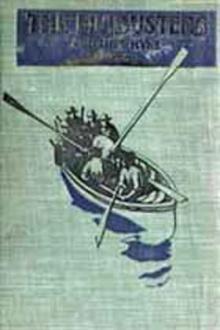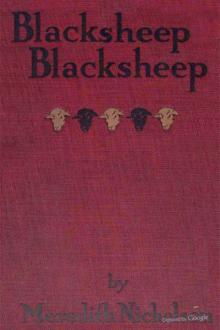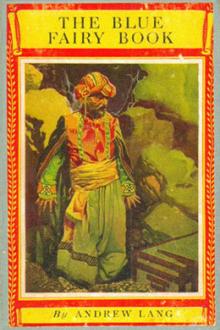The Filibusters, Charles John Cutcliffe Hyne [best book clubs .TXT] 📗

- Author: Charles John Cutcliffe Hyne
- Performer: -
Book online «The Filibusters, Charles John Cutcliffe Hyne [best book clubs .TXT] 📗». Author Charles John Cutcliffe Hyne
Briggs, of course, took the man quite earnestly. He had a faculty of doing this when he chose, and it gave him much of his power. He appreciated the fact that anyone may resent ridicule, but that many people are willing to pay in service for sympathy and appreciation; and being a wise man, he neglected no means which might tend to further his ends.
“You may rest assured, Mr. Davis,” he said, “that I shall not be forgetful in that respect. Hitherto the presidents of Sacaronduca have acted with the instincts of brigands, and their manners have been formed so as not to spoil the completeness of the part. They have been vulgar assassins and even more vulgar housekeepers. To my way of thinking these are both criminal errors in a ruler especially the latter of the two. The pomp and formalities of a court lend dignity to a State, and to neglect them is a piece of commercial fatuousness. More is done for a Government in the drawing-rooms of society than with all the rifles that were ever put into the field; and it is to help me in this respect that I have selected my officers, quite as much as for their other abilities.”
“I suppose, sir,” said Davis tentatively, ” you would hardly think it worth while to institute titles of nobility? At present, that is?”
“Why, to tell you the truth, Mr. Davis, the idea had not struck me before. But I admit that it has its good points. What do you say, Sir William?”
Carew was filling his pipe. He continued the operation as he spoke: ” Oh, as far as I’m concerned, damn titles. They don’t bring in half as much money as they help you to pay out, and they often make people stare at the precise moments when you don’t want to be looked at. But I believe some varieties of flats like wearing ‘em, and I don’t see they do any particular harm to anybody else. But I say, General, the prospect of never-ending afternoon teas isn’t quite what I look forward to for the balance of my declining years. And I don’t think I should find a succession of levees and State balls exhilarating even in Sacaronduca. I’ve got much more material ambitions. What I want to know is, where does the plunder come in? Hugh, I say, chuck me the matches. I’ve been in a state of stoney-broke ever since I couldn’t pay my tuck-shop bill at dame-school, and I don’t mind telling you (without the least ornamental trimming to the statement) that what I’m joining your racket for, is what I can make out of it. The titles, Davis may collect to his heart’s content; the honour and glory you may split amongst you; so long as I can get my cargo of dollars, I shall be entirely content. I’m not fastidious, ‘mon General.’ I’m the least careful man about my skin in all England, Fluellen not excepted; I’m not in the smallest bit squeamish about dirtying my fingers over the operation; but if I’m to turn soldier of fortune under your aegis, it is in return for a clear opportunity to loot.”
“Here,” said Coffin, ” are the matches. Light your pipe, Billy, and shut your mouth round the end of it. You are a most abominable pirate if one could believe what you say. General, don’t mind him: the creature isn’t half such a blackguard as he tries to make out.”
Briggs laughed. ” If we were entirely honest,” he said, ” wouldn’t we most of us have to confess that we were going into the business because we want to make something out of it? Some of us desire power; some excitement. Others aspire for position; others again for a money competency.” He glanced at Fluellen, and then turned his gaze rather ostentatiously away from him. “And,” he added, ” I can imagine, gentlemen, that more than one man will throw himself heart and soul into all the risks and strivings of our enterprise from no other motive than to make a series of entirely new interests, and to cut himself away from memories of unpleasant things which have gone before. So you can say we are none of us disinterested. Indeed, a man who came into an affair of this sort without some definite personal motive would be nothing short of an idiot. And,” the General concluded with a dry smile, ” I am not an idiot myself, neither do I offer employment to idiots.”
“By Jove,” said Coffin, “if this is to be a declared game, I suppose I shall have to save myself from being classed as an idiot by saying what I’m after, though on my soul I’d never thought of such a small trifle before. Better put me down for loot, too, General. Me family’s too old to take up a bran new title with a decent grace, and as for making me Governor-General of a province, or Prime Minister, or Master of the Horse, I’m afraid the regular hours wouldn’t suit at all. I like to take my occupations pretty highly spiced, and I like to take them in doses when the fancy comes upon me. So, General, dear, we’ll write it down that I’m after money. I’m not so broke as Billy here, and I seem to have worried along pretty comfortably on just double my income since I was twenty-one, and that’s eight years ago now; but if I could double what I have, why, then, I could quadruple what I spend, and have six times as high a time of it.”
The General laughed and nodded, and said he would remember, and I, sitting near him, mar- .velled within myself as to why he had made this cheery, irresponsible, whisky-drinking, sportadoring little Irishman into one of his principal officers. To my limited vision then, the man seemed a mere piece of laughing incompetence, possessed of a delicious untrustworthiness, and nothing else. But afterwards, when the fighting came, he turned out to be as clever and cunning and desperately brave an officer as any commander might wish to have, besides being a diplomatist of no mean order, and the best compounder of devilled anchovies inside the tropic of Cancer.
FLUELLEN always breakfasted off cigarettes in bed, but when we others had finished our meal next morning he joined us in Briggs’ room at the Metropole, and listened to the final discussion. He did not talk, but sat in a cane rocker, with a hundred box of cigarettes at his elbow, lighting each new one on the glowing stump of the last, and consuming exactly fifteen to the hour. But then his moustache was rather long, and he did not smoke the ends down very close. He was a big-boned, dark-faced fellow, with a great pucker of wrinkles, which perched between his eyebrows, and which only lifted when the risks of the expedition were touched upon. You could not say that he showed enthusiasm even then; he still looked ineffably bored and weary; but a glint lighted up in his black eyes (when in our talk at the table the chance of violent action was spread out before him) which hinted at a magazine of brazen recklessness stored up somewhere within his listless body, which would blaze out like lighted gunpowder when the time came to touch it off.
But I am afraid that in that last morning’s palaver there was much which Fluellen must have found intensely wearisome. Carew wanted to know with precision where his particular share of the plunder was coming from, and on the financial profits of the revolution we talked for two solid hours. Then Davis harked back to social matters, and, finally, out of one thing and another, Briggs thought it best to lay before us a sketch of the entire scheme of policy which he had mapped out, and the reasons which had brought him to think it the best for Sacaronduca.
“As a youngster,” the General began, ” I was brought up in England (or rather in Yorkshire), and I commenced life with a strong inherited Toryism. I cannot say I kept to the creed very long. I began early to see that, do what they would, my party could not hinder their opponents from fettering every wish and every movement of the people by Act of Parliament. Your Radicals wished to prevent the Briton from working more than eight hours a day, from amassing wealth beyond a certain limit, from going to a theatre when he chose, or even from getting comfortably drunk when the whim so seized him. They wanted to make him moral under penalties, according to their own arbitrary code of morality, and if they ground all the pleasure out of his life during the process, that was a detail which never worried them.
“I knew the Conservatives would always continue to fight against this narrow tyranny; but their chief strategy seemed to be in butting off each new and obnoxious measure by bringing in another which was only a trifle less noxious; so that laws were heaped upon laws till the wretched country groaned under the great burden which it had created out of nothingness to wear like a caugne upon its own shoulders.”
He paused and I looked up. His face was set and serious. Presently he went on again.
“I pictured circumstances which might arise for myself or other people, and every way the arm of some law would be thrust out which cramped one’s efforts. And every session other laws were being made. They sprouted up like some hideous paling all round one. Every day they grew closer in rank; every day more stifling. I could not breathe. I had no air; there was nothing around me but laws, laws, laws; and more laws; everywhere laws.
“You may think this fanciful, gentlemen; in part I do myself, now looking back on those early days from this hill of afterknowledge; but I felt what I say to be very real then. I felt frightened; I lost my head; I adopted the principles of anarchy as the only chance of salvation.”
The General paused again and smiled.
“Of course it was a wild dive, and my friends in England laughed, and very rightly called me a maniac. But I was stubborn, and their ridicule galled me. I was not poor: I was not dependent upon my business; so I sold out, and went to South and Central America, where anarchy (under perhaps other names) has always held a multitude of courts.”
Again the General glanced round and delivered himself of a dry smile. His valet knocked at the door and brought in a letter. He glanced it through, frowned, and proceeded.
“I cannot say that practical rampart anarchy is without its drawbacks. In the first place it weeds the community too indiscriminately with bullets, and in the second, all men are so keenly on the lookout to get in their shot before the other man can fire, that they have no leisure for other interests, and various useful kinds of business in consequence languish. In fact, the one extreme of no laws is rather worse than the other of too many.
“As an outcome of this experience, I propose to establish in Sacaronduca what may be described as a happy mean. I shall make it penal to kill, forge, steal, or conspire against the Government, and the man who observes these four primitive canons may do all other things entirely as he pleases. He may gamble, he may lie; he may open a public-house and keep it open till he is tired of selling; he may divorce his own wife and marry his neighbour’s, if the other parties concerned do not hinder him.
“Of course, there are





Comments (0)